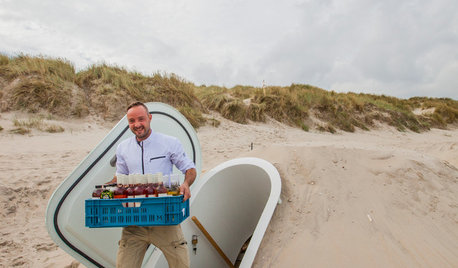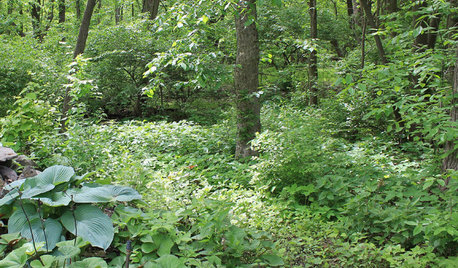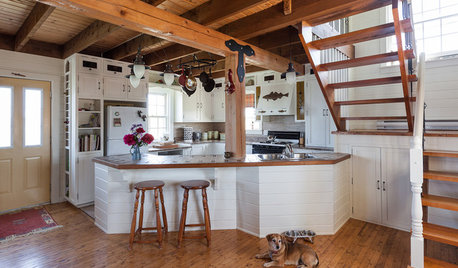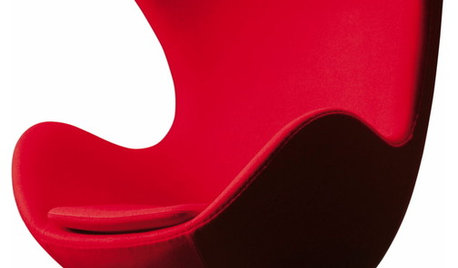Which Freezes First??
walt1
13 years ago
Related Stories

GREEN BUILDINGThe Big Freeze: Inventors Break New Ground to Keep Things Cool
Old-fashioned fridges can be energy guzzlers, but there are more eco-friendly ways of keeping food fresh, as these global innovations show
Full Story
LANDSCAPE DESIGNGarden Overhaul: Which Plants Should Stay, Which Should Go?
Learning how to inventory your plants is the first step in dealing with an overgrown landscape
Full Story
KITCHEN DESIGNHouzz Quiz: Which Kitchen Backsplash Material Is Right for You?
With so many options available, see if we can help you narrow down the selection
Full Story

BATHROOM DESIGNWhich Bathroom Vanity Will Work for You?
Vanities can be smart centerpieces and offer tons of storage. See which design would best suit your bathroom
Full Story
REMODELING GUIDESWhich Window for Your World?
The view and fresh air from your windows make a huge impact on the experience of being in your house
Full Story
KITCHEN DESIGNOpen vs. Closed Kitchens — Which Style Works Best for You?
Get the kitchen layout that's right for you with this advice from 3 experts
Full Story
FUN HOUZZHouzz Quiz: Which Midcentury Modern Chair Are You?
Have a seat for a little fun. Better yet, have a seat that has you written all over it
Full Story
KITCHEN DESIGN12 Great Kitchen Styles — Which One’s for You?
Sometimes you can be surprised by the kitchen style that really calls to you. The proof is in the pictures
Full Story
DECORATING GUIDESWhich Wallcovering Is Right for You?
Transform a Space With a Wall of Wood, Paper, Fabric, Maps and More
Full Story





homehydro
grizzman
Related Professionals
Jennings Landscape Architects & Landscape Designers · Tomball Landscape Architects & Landscape Designers · Woodinville Landscape Architects & Landscape Designers · Arlington Landscape Contractors · Dixon Landscape Contractors · Golden Landscape Contractors · Hawaii Landscape Contractors · Northbridge Landscape Contractors · Pahrump Landscape Contractors · San Carlos Park Landscape Contractors · Stony Brook Landscape Contractors · Westchester Landscape Contractors · Westford Landscape Contractors · Sun Valley Landscape Contractors · North Bellport Outdoor Lighting & Audio Visual Systemswillardb3
hex2006
grizzman
homehydro
hardclay7a
homehydro
homehydro
hardclay7a
willardb3
joe.jr317
willardb3
homehydro